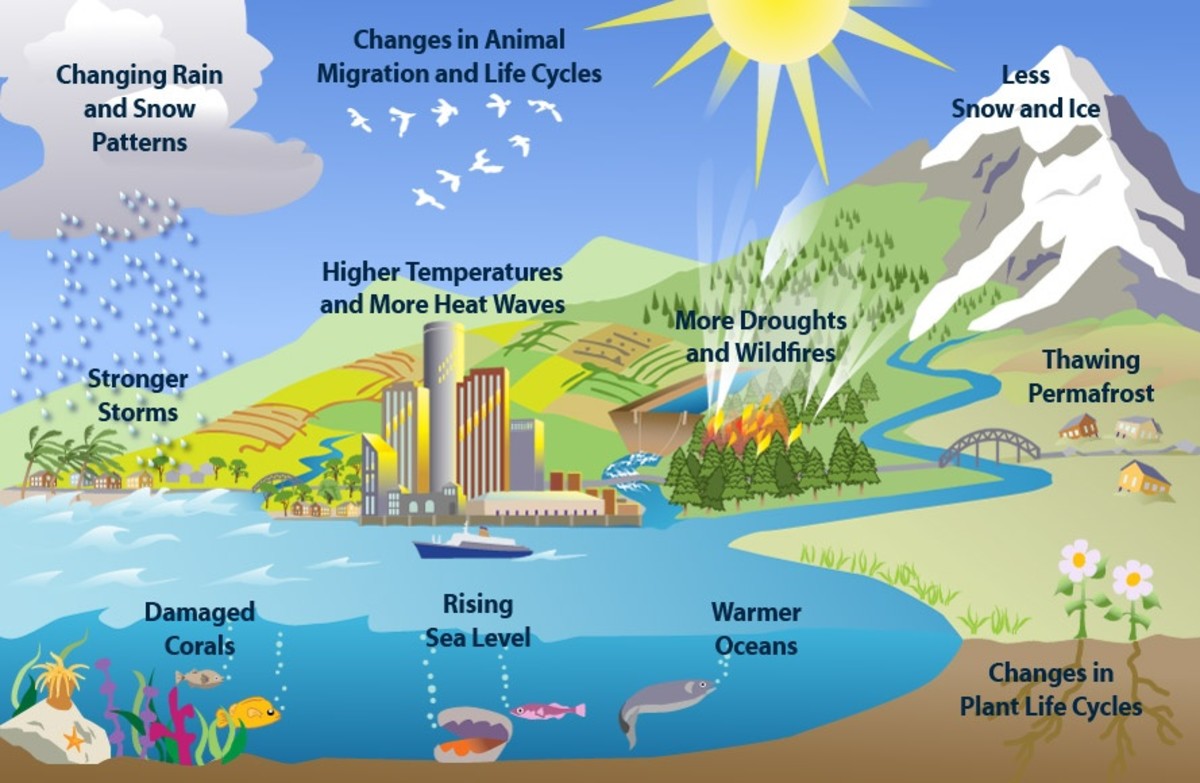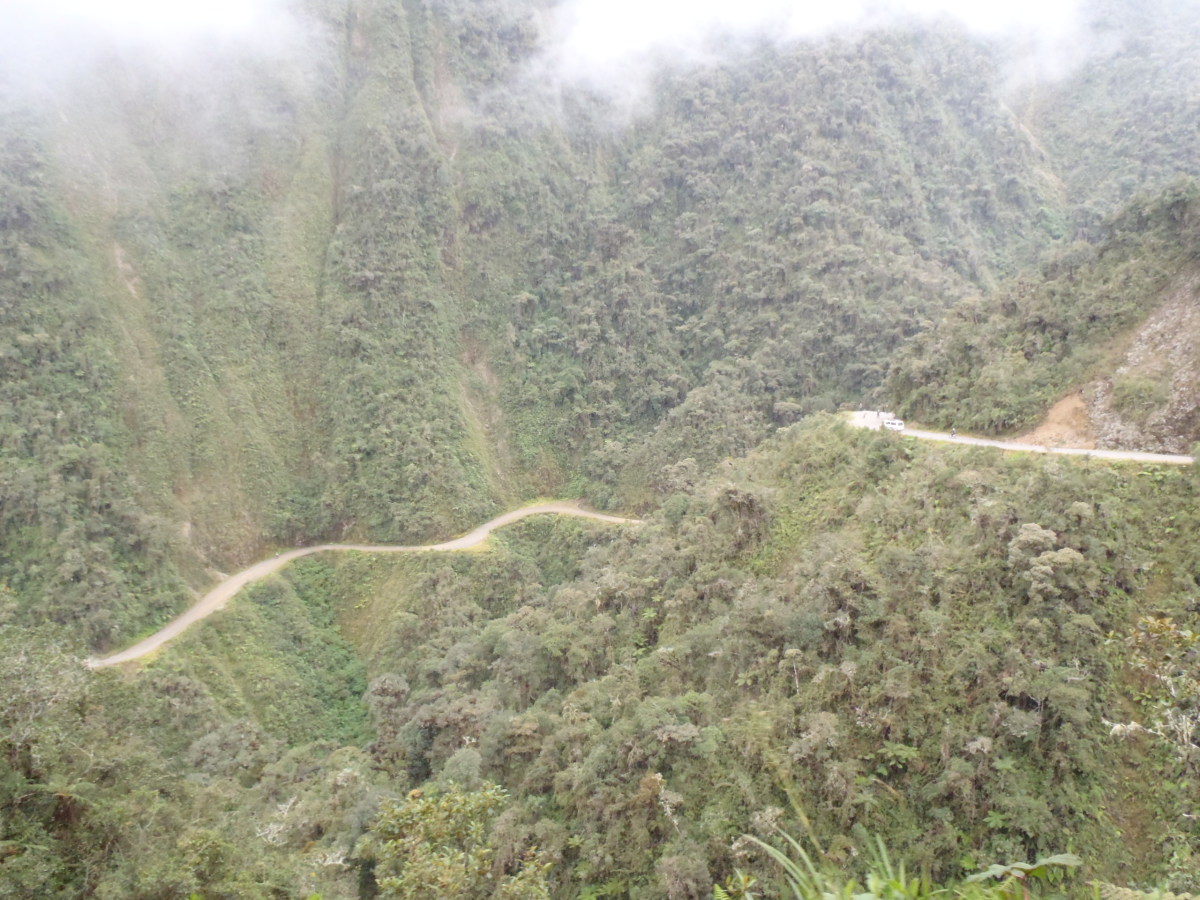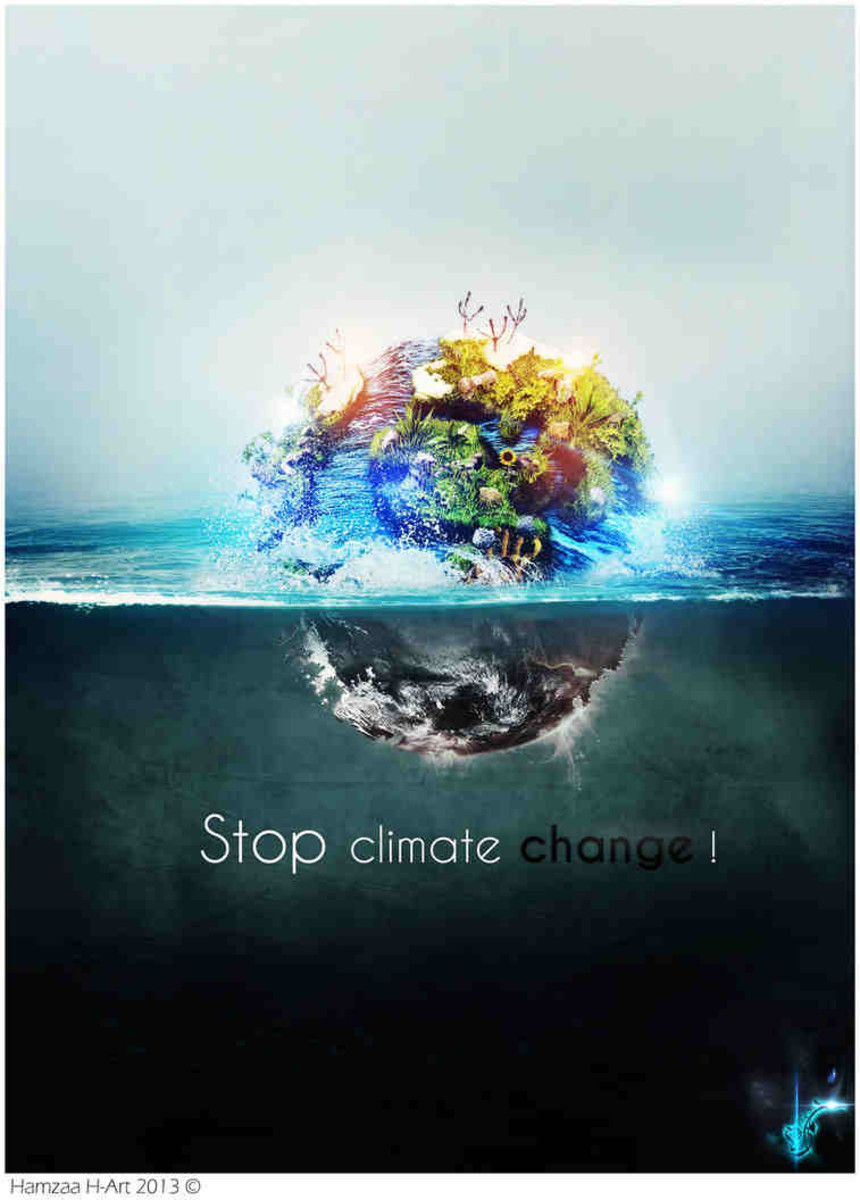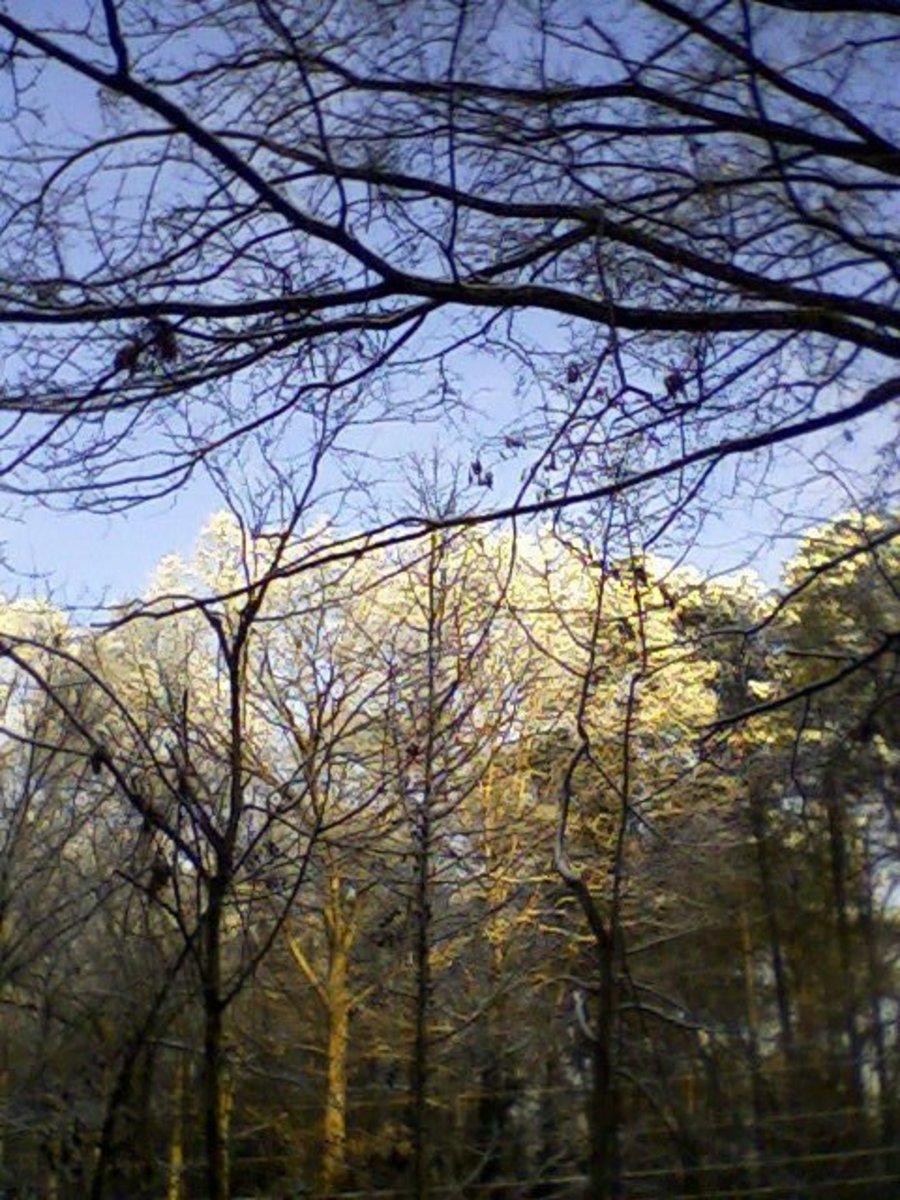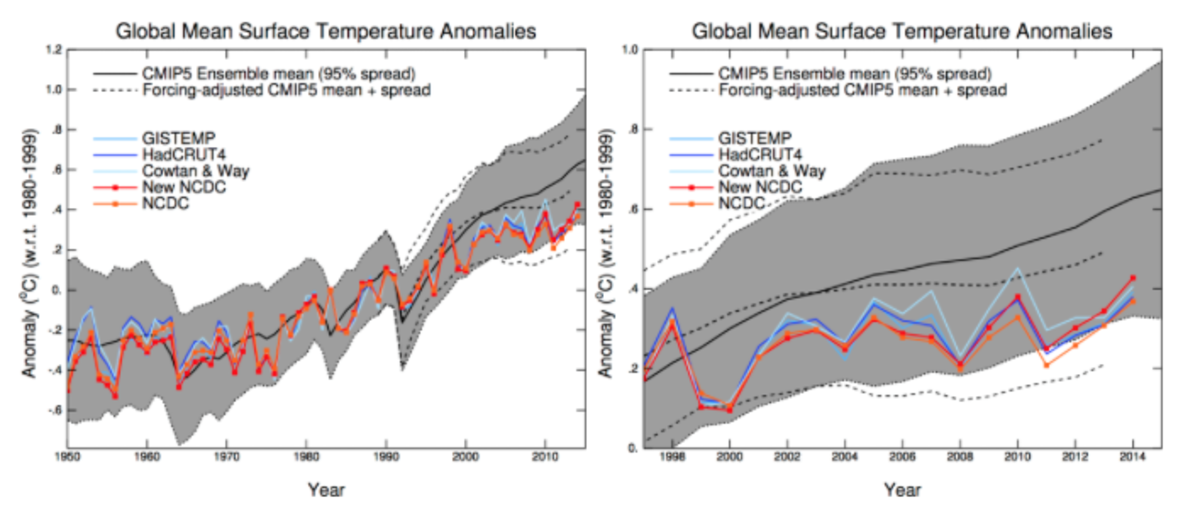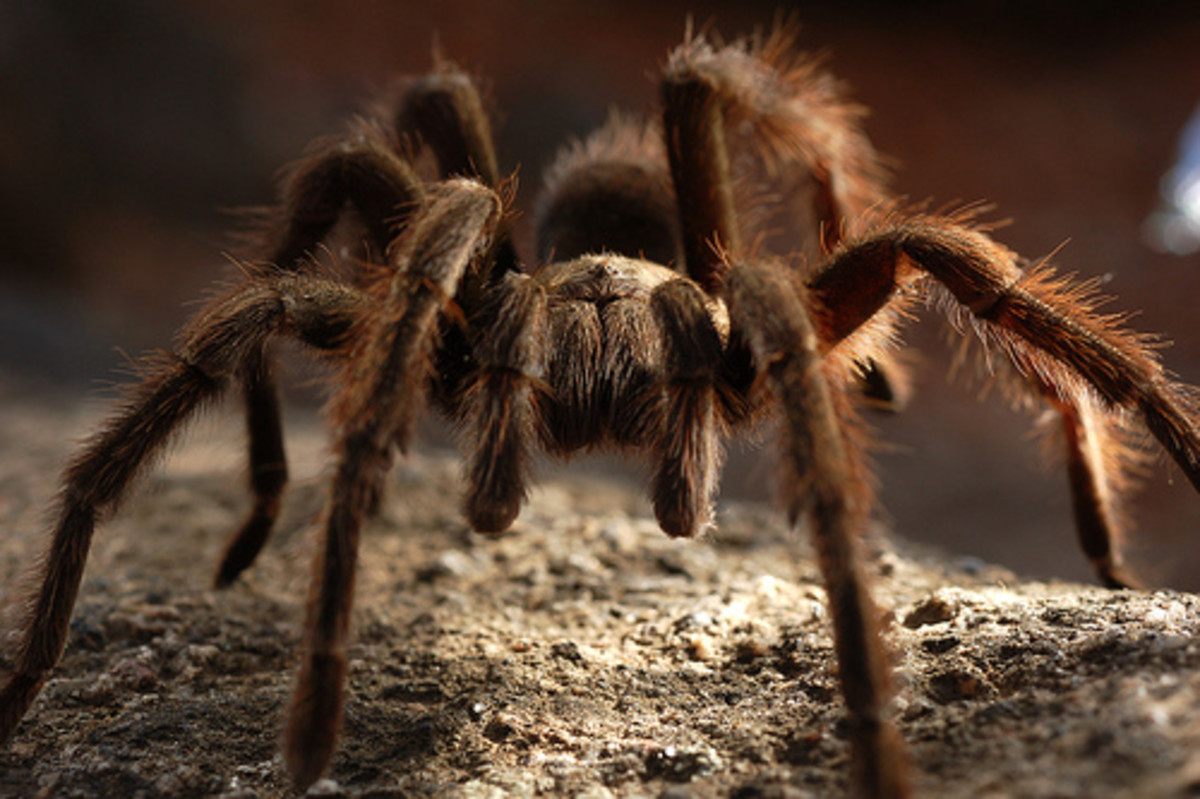The Second Largest Lake in Bolivia, Lake Poopó, is Gone: Is Global Warming to Blame?
Lake Poopó is Gone
Where Lake Poopó once sat, is now an empy lakebed of cracked terrain. Reuters reported on December 17, 2015, that the lake had only .0001% of surface water remaining. (Source: Reuters)
Lake Poopó in Recent times
The site of Lake Poopó is in the Andes mountains, and routinely experienced fluctuating water levels. As recently as the 1990's, the lake held as much as 772 square miles of water. It even had its fair share of droughts, but never did it dry completely out -- until now. Rain has diminished in recent years, causing the lake to recede to record low levels, until December 2015, when it completely disappeared off of the face of the Earth.
Environmentalists are Quick to Cite Global Warming
Many environmentalists quickly blame global warming and climate change for the disappearance of Lake Poopó, as it directly affects the economy of 8 surrounding municipalities in the country of Bolivia. But is there enough proof to say that it is truly caused by global warming (as we know it), or could it just be a dry spell and a period of drought over a span of decades?
Lake Poopó in 1991 & 2006
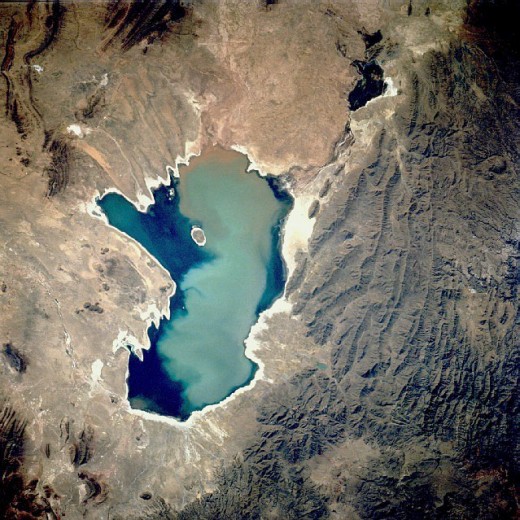
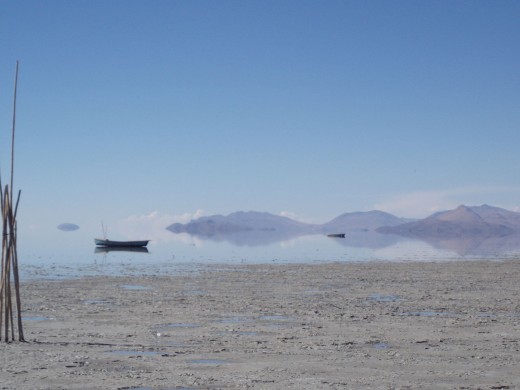
COP21 Climate Summit
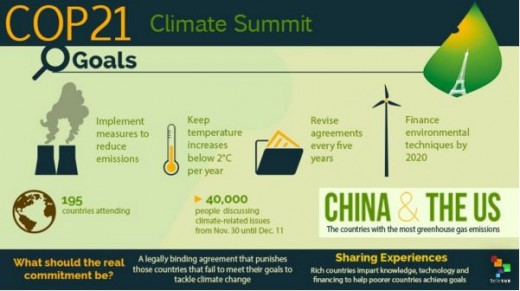
About the COP21 Climate Change Conference
The World Must Pay...
Bolivia Demands Payment for the World's actions
Interesting enough, Bolivia is among a list of developing countries that is seeking punitive damages from industrialized countries "causing climate change". Leaders from many countries came together in Paris, France Nov. 30 - Dec. 11 at COP21 conference, which discusses the world climate crisis. The countries at the top of the list for greenhouse gases are #1 China, and #2 United States. (Source: Wikipedia)
At COP21, the Community of Latin American and Carribbean States (CELAC) urged world leaders to hold the world's global warming between 1.5 to 2 * Celcius (max.), as to not send the world into an unrecoverable state.
Do you think that the countries of the world can "control" climate change?
NASA Satellites Measure Ice for Climate Change

NASA Antartctic Sea Ice Video
NASA Data Analyzed for the Polar Ice Caps
According to this May 2015 Forbes article, NASA satellite instruments have been measuring the Earth's polar ice caps since 1979. The startling discovery for most global warming advocates here is that the polar ice caps have remained above the 1979 average, until 2012. Since then, it has receded about 10%.
Al Gore predicted that the Arctic ice cap could completely disappear by 2014. That prophecy did not come true, and not even close, which is one very good reason why I am still skeptical that global warming is a thing.
Scientists that Believe that Climate Change is a Result of Natural Processes, rather than Human Activities
Scientist Name
| Profession
| Institution
|
|---|---|---|
Sallie Baliunas
| retired astrophysicist
| Harvard-Smithsonian Center for Astrophysics
|
Khabibullo Abdusamatov
| astrophysicist at Pulkovo Observatory
| Russian Academy of Sciences
|
Timothy Ball
| historical climatologist
| University of Winnipeg
|
Robert M. Carter
| former head of the school of earth sciences
| James Cook University
|
Ian Clark
| hydrogeologist
| University of Ottawa
|
Chris de Freitas
| associate professor, School of Geography, Geology, and Env. Science
| University of Auckland
|
David Douglass
| solid-state physicist, professor, Department of Physics and Astronomy
| University of Rochester
|
Don Easterbrook
| emeritus professor of geology
| Western Washington University
|
William M. Gray
| professor emeritus and head of the Tropical Meteorology Project
| Colorado State University
|
William Happer
| professor emeritus, physicist specializing in optics and spectroscopy
| Princeton University
|
Ole Humlum
| professor of geology
| University of Oslo
|
Wibjörn Karlén
| professor emeritus of geography and geology
| University of Stockholm
|
William Kininmonth
| meteorologist
| frmr delegate to the World Meteorological Organization Commission for Climatology
|
David Legates
| associate professor of geography and director of the Center for Climatic Research
| University of Delaware
|
Anthony Lupo
| professor of atmospheric science
| University of Missouri
|
Tad Murty
| oceanographer; Departments of Civil Engineering and Earth Sciences
| University of Ottawa
|
Tim Patterson
| paleoclimatologist and professor of geology
| Carleton University in Canada
|
Ian Plimer
| professor emeritus of mining geology
| University of Adelaide
|
Murry Salby
| atmospheric scientist
| Macquarie University and University of Colorado
|
Nicola Scafetta
| research scientist in the physics department
| Duke University
|
Fred Singer
| professor emeritus of environmental sciences
| University of Virginia
|
Willie Soon
| astrophysicist
| Harvard-Smithsonian Center for Astrophysics
|
Roy Spencer
| meteorologist; principal research scientist
| University of Alabama in Huntsville
|
Henrik Svensmark
| physicist
| Danish National Space Center
|
Jan Veizer
| environmental geochemist, professor emeritus
| University of Ottawa
|
Just a few (but not all) prominent scientists that do not believe humans are not responsible for climate change but is rather naturally occurring as a global cycle. Source: Wikipedia
Views of the Author on Climate Change
Disclaimer: The author of this article does not hold climate change as 100% science fact, as there are experts on both sides of the issue. There are legitimate scientists, professors, and intellectuals in the science field that do not agree with the climate change hysteria, and resulting regulations derived from it.
However, the author did intend to pose the information presented in this article as factual and unbiased as possible. The author also believes that humans should be good stewards of the Earth, preserving human, plant, and animal life for future generations.
Global Warming Poll
Are you convinced that Lake Poopó is gone because of global warming?
© 2016 Zack Love

